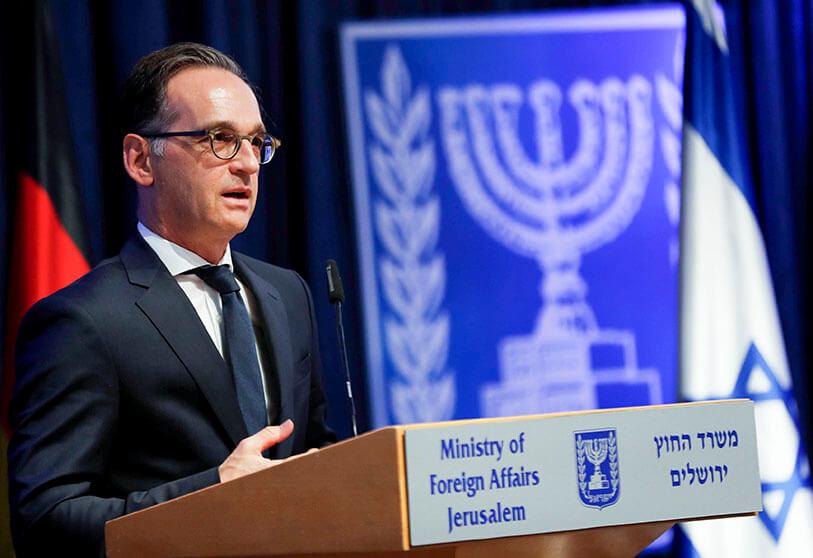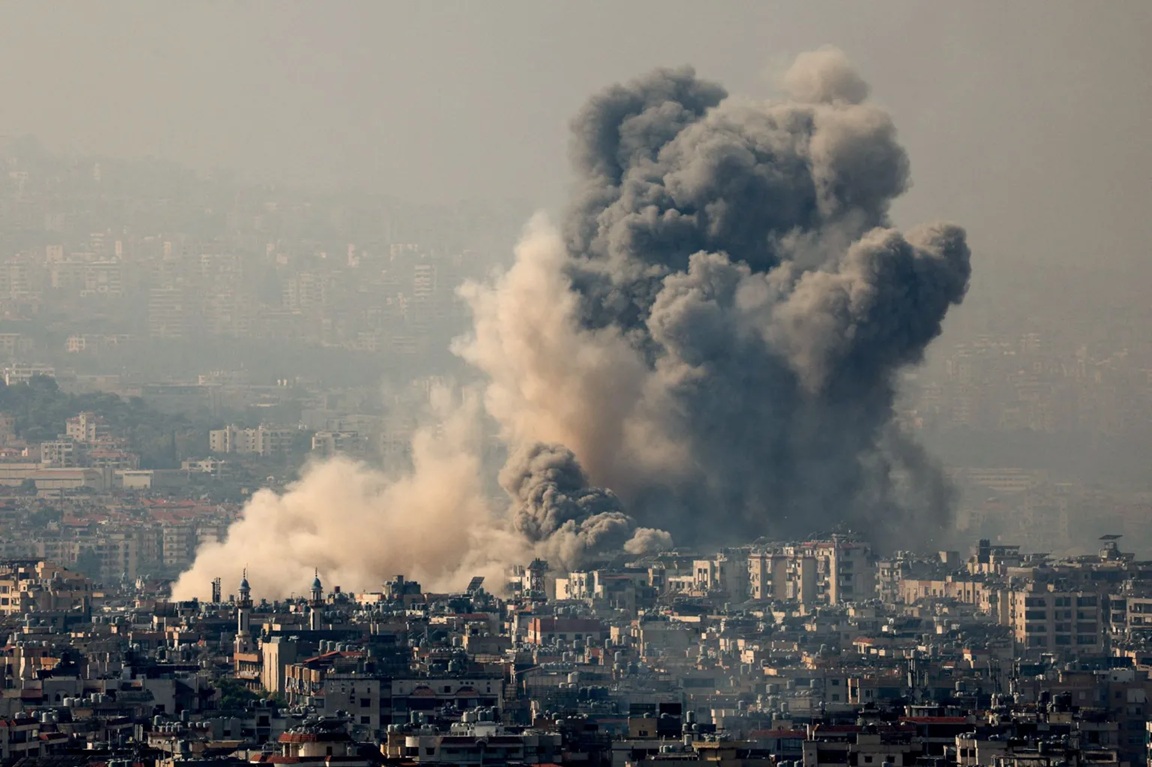
Germany’s foreign minister said on Wednesday that Lebanon needed a government that can fight corruption and enact reforms as he toured Beirut port, scene of the devastating explosion that has triggered protests and led the government to resign.
Last week’s blast at a warehouse storing highly-explosive material for years killed at least 171 people, injured some 6,000 and damaged swathes of the Mediterranean city, compounding a deep economic and financial crisis.
“It is impossible that things go on as before,” Foreign Minister Heiko Maas said. “The international community is ready to invest but needs securities for these investments. It is important to have a government that fights the corruption.”
“Many in Europe have a lot of interest for this country. They want to know that there are economic reforms and good governance. Whoever takes over responsibility in Lebanon has a lot to do.”
Maas gave a check for over 1 million euro to the Lebanese Red Cross, part of 20 million euros in humanitarian aid from Germany.
International humanitarian assistance has poured in but foreign countries have made clear they will not write blank cheques to a state viewed by its own people as deeply corrupt. Donors are seeking enactment of long-demanded reforms in return for financial assistance to pull Lebanon from economic meltdown.
The resignation of Prime Minister Hassan Diab’s government has plunged Lebanon into deeper uncertainty. Its talks with the International Monetary Fund for a bailout had already been put on hold over a row between the government, banks and politicians about the scale of vast financial losses.
Sitting amid the debris, Lebanese expressed their frustration at the state for abandoning them in their desperate efforts to rebuild homes and businesses wrecked in the blast.
“Who knows what will happen. How will we get back to business,” said Antoinne Matta, 74, whose safe and lock store was heavily damaged by the blast. Five employees were wounded.
“We in Lebanon are used to the government not doing anything.”
Unrest has erupted with Lebanese calling for the wholesale removal of a ruling class they brand as responsible for the country’s woes. The financial crisis has ravaged the currency, paralysed banks and sent prices soaring.
Officials have said the blast could have caused losses of $15 billion, a bill Lebanon cannot pay, given the depths of the financial crisis that has seen people frozen out of their savings accounts since October amid dollar scarcity.
The central bank has instructed local banks to extend interest-free dollar loans to individuals and businesses for essential repairs, and that it would in turn provide those financial institutions with the funding.
“EVERYTHING IS GONE”
Bandali Gharabi, whose photo studio was destroyed, said that so far local authorities had only give him a compensation sheet to fill out. He does not know if the bank will provide financial assistance because he already has a car loan.
“Everything is gone,” he said. “I just want someone to rebuild my shop.”
President Michel Aoun has promised a swift and transparent investigation into the blast at a warehouse where authorities say more than 2,000 tonnes of ammonium nitrate was stored for years without safety measures. He has said the probe would look into whether it was negligence, an accident or external factors.
Reuters reported that Aoun and Diab were warned in July about the warehoused ammonium nitrate, according to documents and senior security sources.
The presidency did not respond to requests for comment about the warning letter.
An emergency donor conference raised pledges of nearly 253 million euros ($298 million) for immediate humanitarian relief.
Volunteers and construction workers with bulldozers were still clearing wreckage from neighbourhoods more than a week after the blast. Rows of destroyed cars were still parked in front of damaged stores and demolished buildings.
Nagy Massoud, 70, was sitting on the balcony when the blast gutted his apartment. He was saved by a wooden door that protected him from flying debris. A stove injured his wife.
His pension is frozen in a bank account he cannot access due to capital controls prompted by the economic crisis.
“Where is the government,” he said, looking around his shattered apartment.
Source: Reuters






As long as the hoardable form of money is used,
it will sooner or later
end up in The Dark Realms
and operating to cause
the same chaos and confusion
that it has been causing for 1000’s of years;
Human Slave Trafficking
and
Corruption.
Ask President Trump to declare demurrage on The US dollar
and you will get money with demurrage easily.
A much smaller loan will be needed,
it will circulate like it should
and Beirut harbor and homes and businesses
will get restored even better than before.
All of Lebanon will benefit,
and so will the whole word which is trying to help
because the donations won’t need to be so great.
Exports will rise
with the use of
unhoardable money with demurrage
in Lebanon.
Ask President Trump to
declare demurrage on The US dollar.